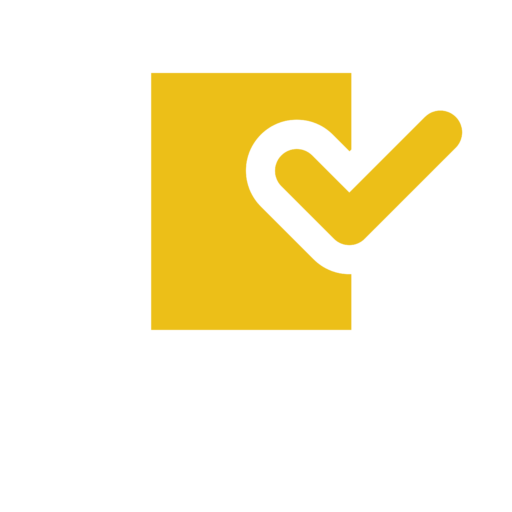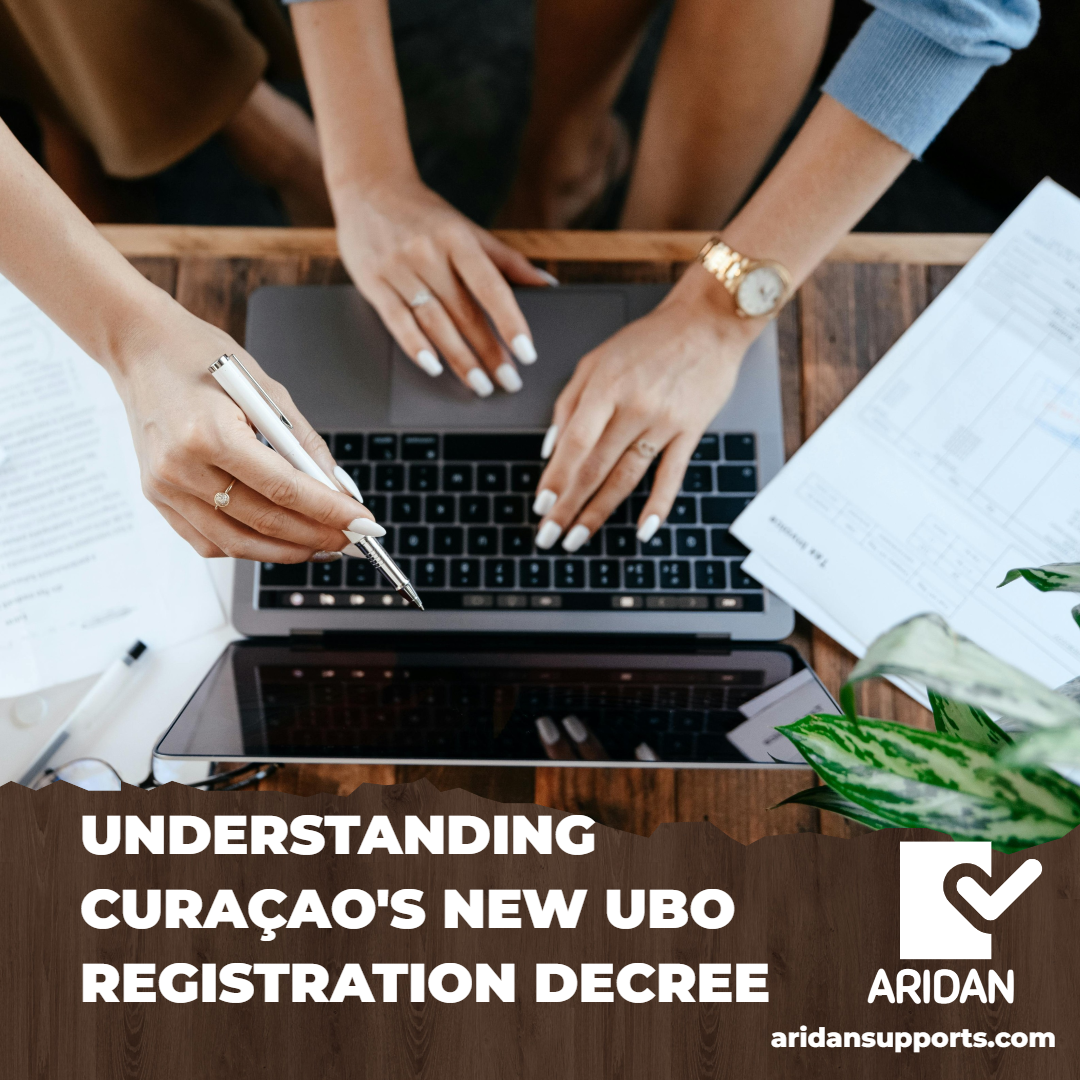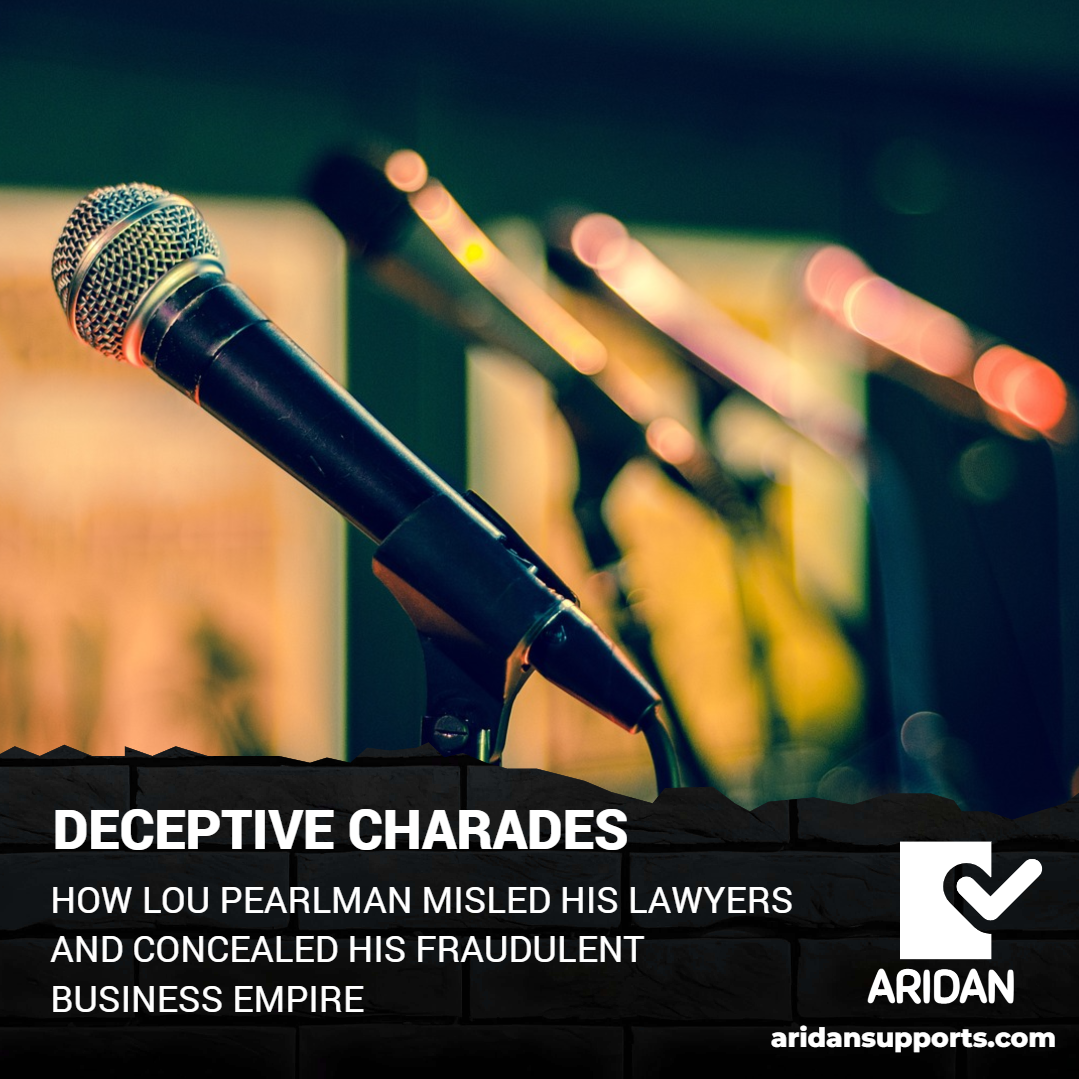The National Decree on Ultimate Beneficial Owner (UBO) registration, known in Dutch as “Landsbesluit UBO-registratie”, was published on June 4, 2024. This decree mandates the establishment of a UBO registry for entities based in Curaçao.
The “Landsbesluit UBO-registratie” (National Decree on UBO registration) outlines the responsibilities of the Curaçao Chamber of Commerce and Industry (CCCI) in maintaining this register and ensures the registration is conducted electronically to ensure data security and authenticity.
It aims to bolster transparency, enhance regulatory compliance with international standards, and mitigate the risks associated with financial crime such as money laundering and terrorism financing.
It specifies the types of entities covered, the information required for registration, data submission procedures, and the Secretary’s role in overseeing compliance. Penalties are imposed for non-compliance, and the decree includes provisions for data access by authorized authorities and periodic review of the register’s effectiveness.
This article provides an overview of the entities covered in the National Decree on UBO registration detailing the required UBO registration information, data submission procedures, and penalties for non-compliance. It is intended as an educational resource from a non-legal perspective.
TYPES OF ENTITIES COVERED
The decree applies to various legal entities, except sole proprietorships: Legal entities as defined in Book 2 of the Curaçao Civil Code, a company as defined in Title 13 of Book 7 of the Curaçao Civil Code, a trust as defined in Title 6 of Book 3 of the Curaçao Civil Code, or similar legal constructs under foreign law that are comparable to any of the aforementioned legal forms (article 1).
To simplify, it applies to the following legal entities based/registered in Curaçao:
- Public limited companies (N.V.s)
- Private limited company (B.V.s)
- Trusts
- Foundations/Private Foundations
- Associations
- Cooperatives
- Partnerships
- Other legal constructs similar to the above
ABOUT THE ULTIMATE BENEFICIAL OWNER
Regarding the definition of “ultimate beneficial owner” (UBO), Curaçao amended Article 45 of the National Ordinance on General National Taxes (NOGNT) in July 2018 to align with OECD standards according to the OECD 2019 report.
The amendment defines UBOs as
- a) all natural persons who directly or indirectly own 25% of the entity or the natural person who exercises “effective control by other means”, and
- b) all natural persons for whose account a transaction or activity is conducted. For partnerships, being legal arrangements, all relevant natural persons with a stake in the partnership should be identified.
However, according to the OECD report, no further guidance on “effective control by other means,” necessitates clarification from Curaçao authorities for effective identification. This aspect should be clarified by the Curaçao authorities to the various stakeholders to ensure that such beneficial owners are also effectively identified.
In the event of an inability to identify the beneficial owner based on direct and indirect ownership or control, the definition requires that the natural person(s) belonging to senior management or board members would need to be identified as the beneficial owner.
Article 45 of the NOGNT requires that all legal persons must keep identity records of all directors, authorized representatives, and ultimate beneficial owners in their possession. Companies must have the personal documentation, such as copies of valid passports, valid driver’s licenses, or valid identity cards, of all identified natural persons. Article 43 (clause 6) requires that such documentation be kept for ten years from the date of any new entry or change in details.
INFORMATION REQUIRED FOR REGISTRATION
The registration process for each entity and its Ultimate Beneficial Owners (UBOs) must include the following details as per Article 6, clauses 1 to 3:
For the Entity:
- Name of the entity
- Crib number
- Registration number at the Chamber of Commerce
For the UBOs (natural persons):
- Full Name
- Date of birth
- Country of birth
- Nationality
- Residential address and country of residence
- Crib number for residents of Curaçao
- Tax identification number or valid identification number for non-residents
- Justification for why the individuals qualify as UBOs
Required Documentation:
The following documents need to be filed in the UBO register:
- Shareholders’ register
- Certificate holders’ register
- Deed of Incorporation/Articles of Incorporation
- Other notarial deeds
- Members’ register
- Contract of incorporation
- Organizational chart
- Other relevant documents
- Copy of the power of attorney, if applicable
For Each UBO:
- Copy of a valid identification document
- For non-residents: an official document not older than six months from the civil registry or a similar foreign authority indicating the country of residence.
PROCEDURES FOR DATA SUBMISSION
The procedures for data submission detailed in the decree are crucial in ensuring the accuracy and security of registration processes for UBOs.
Electronic Submission
Registration and any changes to the registration must be submitted electronically through a designated website to ensure data authenticity and security (article 13).
Notification and Verification
The notifier receives an email confirmation upon submission. The CCCI verifies if the submission is from an authorized person and if the form is complete (article 5).
Authorized Submissions
Only authorized individuals can submit the data. If the submission is not made by the entity’s management, a power of attorney is required (article 5).
Notary’s Role
Notaries must report the establishment or modification of entities and trusts within two weeks to prevent unregistered entities from operating (article 4).
By ensuring these steps, the law aims to maintain accurate and up-to-date records of UBOs, enhancing transparency and compliance with international standards to combat money laundering and terrorism financing.
PENALTIES FOR NON-COMPLIANCE ACCORDING TO THE LAW
The National Decree on UBO registration outlines several penalties for non-compliance with its requirements regarding the registration of UBOs. Here are the key details:
Administrative Fines
An administrative fine of up to NAf 25,000 can be imposed for non-compliance. This includes failing to register UBOs, registering UBOs late, or providing incomplete information. The CCCI is responsible for notifying the Inspector if any entity fails to comply, and only the Inspector can impose this administrative fine (article 11).
Criminal Sanctions
Failure to correctly report UBOs, either by not registering them in time or providing false information, is punishable by law (article 10). Penalties for such offenses can include a prison sentence of up to six months or a monetary fine in the fourth category according to article 49 of the NOGNT.
Obligations of Authorized Authorities
Authorized authorities must notify the CCCI if they discover that the information in the UBO register is not accurate during their official duties. This helps to keep the register up-to-date (Explanatory memorandum, §6. Article-by-article explanation article 10).
If incorrect data is found, the CCCI can request the entity to provide correct information and inform the Inspector, who can then take appropriate measures, including imposing sanctions (Explanatory memorandum, §6. Article-by-article explanation article 10).
These penalties ensure compliance and accurate reporting within the UBO register, aligning with international standards to combat money laundering and terrorism financing.
FINAL THOUGHTS
Implementing the National Decree on UBO Registration in Curaçao represents a proactive step towards enhancing financial transparency and combating illicit financial activities.
By establishing a robust registry and imposing stringent compliance measures, Curaçao aims to align with global best practices and uphold its commitment to international standards. The register will not be public but the Public Prosecutor, the Central Bank of Curaçao and Sint Maarten, the Financial Intelligence Unit, the Gaming Control Board, and the Inspectorate of Taxes will have access to it.
The decree’s comprehensive approach, which includes registration requirements, submission procedures, and penalties for non-compliance, highlights its importance in protecting the integrity of Curaçao’s financial system and strengthening its contribution to the global fight against financial crime. Although this registration framework remains theoretical for now, as the CCCI UBO Registry page (portal) is not yet ready for use as of date, the true test will lie in its practical implementation.
Sources
Government of Curaçao. (2024). P.B. 2024, no. 58. Landsbesluit houdende algemene maatregelen ter uitvoering van artikel 45, vijftiende en zestiende lid, van de Algemene landsverordening Landsbelastingen P.B. 2013, no. 53, zoals laatstelijk gewijzigd bij P.B. 2024, no. 40 (Landsbesluit UBO-registratie) [National Decree containing general measures for the implementation of Article 45, fifteenth and sixteenth paragraphs, of the General National Ordinance on National Taxes P.B. 2013, no. 53, as last amended by P.B. 2024, no. 40 (National Decree on UBO Registration)]. Dutch version. Retrieved on June 22, 2024 from https://gobiernu.cw/wp-content/uploads/2024/06/58.-Lbham-UBO-Registratie.pdf
Government of Curaçao. (2024). P.B. 2013, no. 53. Landsbesluit van de 24ste april 2013, no. 13/0990, houdende vaststelling van de tekst van de Algemene landsverordening Landsbelastingen. |National Decree establishing the text of the General National Ordinance on National Taxes|. Dutch version. Retrieved on June 22, 2024 from https://minfin.cw/wp-content/uploads/2019/04/P.B._2013__53._Geldende_Tekst_Algemene_landsverordening_Landsbelastingen.pdf
Government of Curaçao. (2024). P.B. 2024, no. 40. Landsverordening van de 14de mei 2024 tot wijziging van de Algemene landsverordening Landsbelastingen, etc. Dutch version. [Amendments National Ordinance on General National Taxes]. Retrieved on June 22, 2024 from https://gobiernu.cw/wp-content/uploads/2024/05/40.-Lv.-herziening-en-reparatie-belastingvo.-2024-1.pdf
Government of Curaçao. (2012). P.B. 2012, no. 49. Landsbesluit houdende vaststelling van de geldende tekst van de Algemene landsverordening Landsbelastingen [National Decree establishing the current text of the General National Ordinance on National Taxes]. Dutch version. Retrieved on June 22, 2024 from https://minfin.cw/wp-content/uploads/2019/04/P.B._2012__49._Geldende_Tekst_Algemene_landsverordening_Landsbelastingen.pdf
HBN Law & Tax. (2018). Curaçao tax instant news: Preferential tax regimes approved. HBN Law & Tax. Retrieved on June 22, 2024 from https://hbnlawtax.com/app/uploads/2019/11/curacao_tax_instant_news_july_2018_-_preferential_tax_regimes_approved_curacao_2018_eng-1.pdf
OECD. (2019). Curaçao: Supplementary Report: Second Round. OECD. Retrieved on June 22, 2024 from https://www.oecd.org/tax/transparency/cura%C3%A7ao-supplementary-report-second-round-2019.pdf








